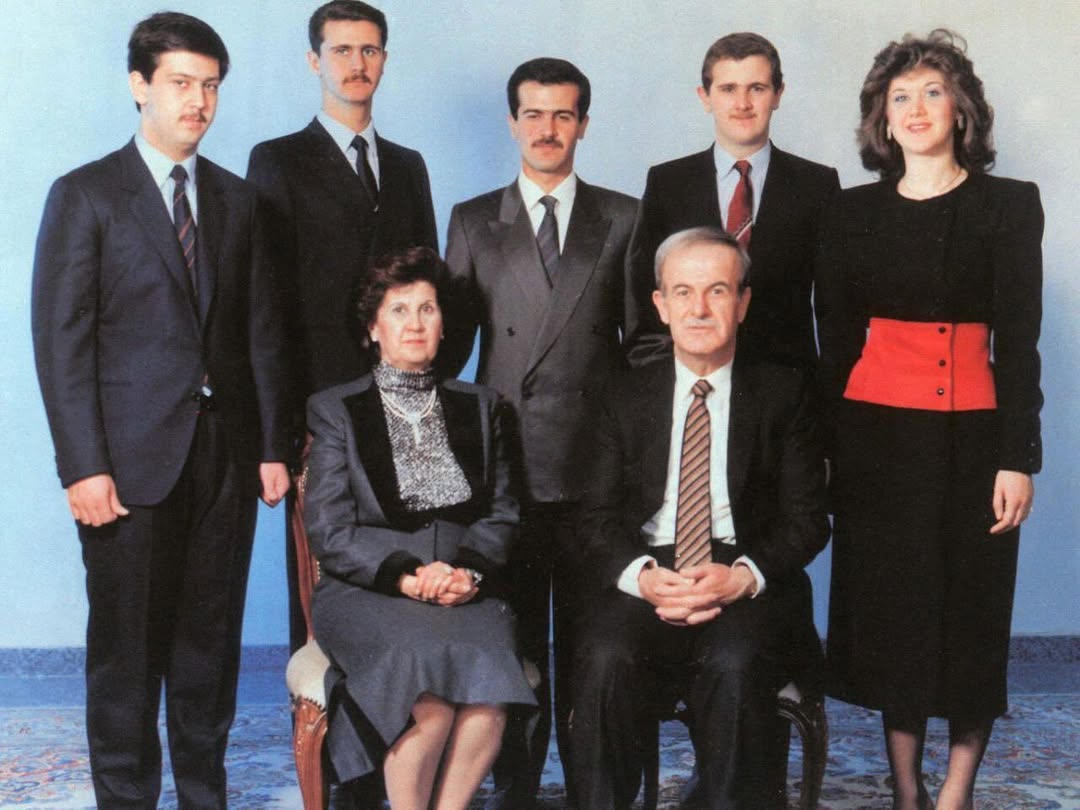End of an Era: Bashar al-Assad Speaks After Regime's Collapse and Syria's New Beginning
Former Syrian President Bashar al-Assad has broken his silence following the collapse of his regime earlier this month, signaling the end of over 50 years of Assad family dominance in Syria. Rebel forces swept through the country in a rapid and coordinated offensive, culminating in the capture of Damascus and the exile of Assad. In his first public statement, Assad emphasized his commitment to resistance and detailed the events leading to his relocation to Russia.
The Assad Legacy
Bashar al-Assad ascended to Syria’s presidency in 2000 after the death of his father, Hafez al-Assad, who had ruled the nation with an iron grip since 1971. Initially perceived as a potential reformer due to his Western education—he trained as an ophthalmologist in London—Assad quickly dashed those hopes. His leadership became synonymous with authoritarianism, nepotism, and systemic oppression.
Under the Assad family, Syria was shaped into a centralized police state with a heavily controlled economy and restricted political freedoms. Hafez al-Assad maintained his rule through military strength and an extensive intelligence network that suppressed dissent. Bashar continued in this tradition, consolidating power and crushing opposition, a legacy that would define his 24-year reign.
The Syrian Civil War, which began in 2011 as part of the broader Arab Spring protests, further entrenched Assad’s reputation. Initially sparked by peaceful demonstrations demanding democratic reforms, the movement was met with violent crackdowns by Assad’s forces. The situation quickly escalated into a full-blown civil war, drawing in international powers, proxy militias, and terrorist organizations.
The Downfall of Bashar al-Assad
Assad’s regime began to unravel in late 2024 after years of attrition in the ongoing conflict. Rebel forces, led by the Hayat Tahrir al-Sham (HTS) group, launched a series of coordinated offensives, capturing key cities like Aleppo and Homs before advancing on Damascus. This sudden surge overwhelmed Assad’s military, which had already been weakened by years of war, desertions, and sanctions.
In his statement, Assad revealed that he had remained in Damascus until December 7, the day rebel forces entered the capital. He claimed to have been “fulfilling my responsibilities” until it became clear that the city was lost. The following day, in coordination with Russian forces, Assad was evacuated to the Hmeimim airbase in Latakia, a key Russian military installation on Syria’s coast.
Despite framing his departure as a tactical necessity, Assad insisted that he had never considered resignation or asylum. “At no point during these events did I consider stepping down or seeking refuge,” he said, describing his leadership as a “stewardship” of Syria’s national cause.
However, reports from Reuters paint a different picture. Assad allegedly sought asylum in the United Arab Emirates during the final days of his regime, but his request was denied due to concerns over potential repercussions from international sanctions. Ultimately, Russia facilitated his evacuation, with Foreign Minister Sergei Lavrov playing a central role in securing his safe passage.
Russia’s Role in Assad’s Exit
Russia has been a steadfast ally of the Assad regime since the early days of the Syrian Civil War. Moscow’s military and diplomatic support were instrumental in helping Assad retain power for over a decade, even as his forces faced international condemnation and mounting losses.
As the situation in Syria deteriorated, Russia coordinated Assad’s departure to Moscow. Sources indicate that the operation was conducted with extreme secrecy, with even some of Assad’s aides unaware of his plans. His wife, Asma, and their three children were reportedly already in Russia awaiting his arrival.
The move underscores Russia’s strategic interest in maintaining influence in Syria, even in the absence of Assad. By facilitating his evacuation, Moscow avoided a potentially chaotic power vacuum while preserving its relationships with other factions on the ground.
Syria’s Transitional Phase
The fall of Damascus marked the end of Assad’s rule, but it also signaled the beginning of a complex transitional period for Syria. Rebel forces, now in control of the capital, have pledged to hold Assad and his associates accountable for alleged war crimes, including the use of chemical weapons against civilians.
The international community has also stepped up its involvement. The United Kingdom dispatched a delegation to Syria to engage with interim authorities and civil society organizations. Foreign Secretary David Lammy reaffirmed the UK’s commitment to a “Syrian-led and Syrian-owned inclusive political process.” Ann Snow, the UK’s special representative for Syria, met with HTS leader Ahmad al-Sharaa in Damascus to discuss reconstruction efforts and future governance.
While these developments signal progress, the road ahead is fraught with challenges. Decades of authoritarian rule, coupled with the devastation of war, have left Syria deeply fragmented. Rebuilding the nation will require addressing issues of governance, reconciliation, and accountability, as well as providing support to the millions of Syrians displaced by the conflict.
The Human Cost of Assad’s Rule
The Syrian Civil War, which began in 2011, has claimed hundreds of thousands of lives and displaced millions. According to United Nations estimates, over 300,000 civilians had died by March 2021. The Syrian Network for Human Rights (SNHR) attributes approximately 87% of these fatalities to Assad’s forces and allied militias.
The atrocities committed under Assad’s regime have been well-documented by human rights organizations. Sednaya Prison, a notorious detention facility near Damascus, became a symbol of the regime’s brutality. Amnesty International’s 2017 report described it as a “human slaughterhouse” where mass executions and torture were routine.
Assad’s forces were also accused of using chemical weapons against civilians, most notably in a 2013 attack on a rebel-held suburb of Damascus. The attack, which killed hundreds, drew international condemnation and remains a focal point in calls for accountability.
Related: Assad Family’s New Life in Moscow: From Syrian Palaces to Russian Luxury
Assad’s Legacy and Future
In his statement, Assad sought to portray himself as a resilient leader who prioritized Syria’s sovereignty over personal gain. However, his legacy is one of repression, conflict, and human suffering. The collapse of his regime marks the end of an era, but it also leaves a deeply divided and traumatized nation in its wake.
While Assad has not explicitly ruled out a return to Syria, his prospects appear bleak. Rebel leaders, including those from HTS, have vowed to hold him accountable for his actions. Additionally, international arrest warrants for war crimes and crimes against humanity further complicate any potential comeback.
The Path Forward for Syria
As Syria transitions away from decades of Assad family rule, the focus shifts to rebuilding the nation and addressing the needs of its people. Rebel factions and interim authorities face the daunting task of establishing a stable and inclusive government capable of uniting a fractured populace.
International support will be crucial in this endeavor. Countries like the UK have already signaled their commitment to assisting Syria in its reconstruction efforts. However, achieving lasting peace will require more than financial aid. It will necessitate addressing the root causes of the conflict, ensuring justice for victims, and fostering a sense of national identity that transcends sectarian divides.
The collapse of Bashar al-Assad’s regime marks a turning point in Syria’s history. After more than five decades of authoritarian rule, the nation now has an opportunity to chart a new course. While the challenges ahead are immense, the resilience of the Syrian people offers hope for a brighter future.
Assad’s departure may close one chapter of Syria’s story, but the work of rebuilding and reconciliation has only just begun. As the world watches, the success of this transition will serve as a testament to the power of collective determination and the enduring spirit of those who seek freedom and justice.














